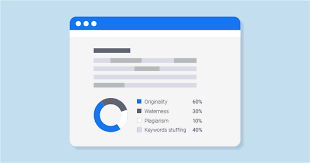Hello!
Why content analysis is necessary.
First of all, what is content analysis really? One of the most important official definitions is: “A research method for the subjective interpretation of the context of text data through the systematic classification of coding and identifying themes or patterns”.
In a nutshell, any form of qualitative research is further categorized and divided into two main aspects.
 Let us take a closer look at what these two mains aspects really are:
Let us take a closer look at what these two mains aspects really are:
- Participant observation: Here, the participant of the study is the researcher.
- Non-participant observation: In this mode of observation, the researcher does not participate, but merely observes.
Here, the content analysis approach can be employed in the case of the latter, that is the non-participant observation. Hence, as you would have already figured out, the emphasis is not on quantity, but on quality. The main aim of content analysis is the basic interpretation of the various perspectives and opinions of various subjects across the board.
 The above definition deals with content analysis in a general sense. Now in a marketing sense, it is simply the auditing of your content in a systematic and planned manner. Now even though the very thought of a content audit may seem like a tedious nightmare to a great many marketers and bloggers out there, the ultimate benefits and payoffs are huge in the end.
The above definition deals with content analysis in a general sense. Now in a marketing sense, it is simply the auditing of your content in a systematic and planned manner. Now even though the very thought of a content audit may seem like a tedious nightmare to a great many marketers and bloggers out there, the ultimate benefits and payoffs are huge in the end.
Not only will the process end up giving you a valuable insight into your content marketing strategy and which areas need improvement, but this itself will ensure that you are more prepared for the future as well.
Now that we have a clear idea of what content analysis is in the grand scheme of things, let us take a look at the four vital aspects that make up the process of content analysis:
- The primary context of different text components
- Latent structures of sense
- Distinctive and specific individual cases
- Certain aspects of the text
As a marketer or blogger, how often have you simply posted something, only to completely neglect it later on? After all, we live in a day and age where trends and topics become irrelevant and outdated over the span of a few months. In this case, we need to periodically keep going back to our content in order to make sure that it stays relevant in the grand scheme of things.
Additionally, the real meaning of a content or marketing audit is taking a good look at all of the content in your website and subsequently assessing its strengths and weaknesses. This way, you can be sure that the process of prioritizing all of your future marketing activities will be a lot easier. Being a qualitative assessment on the whole, you can be sure of the fact that the aspect of evaluation is dependent on the KPIs (Key Performance Indicators) that you end up selecting.
On that very note, here is a list of the most vital questions you need to ask yourself while performing your content audit:
- Which pieces of content are performing the best?
- Which particular topics does your audience connect with the most?
- Which specific posts are outdated?
Know exactly why you are conducting a content audit
In this regard, there is no one universally common reason. There could be a myriad of various reasons. Basically, the main reasons for you undertaking the process of a content audit will determine the steps you take during the content audit procedure itself. There are many tips you can follow for a successful market research survey.
 However, the two main reasons behind a content audit primarily are:
However, the two main reasons behind a content audit primarily are:
- SEO: In this regard, a content audit is the perfect way to identify certain weak spots in your SEO strategy, thus enabling you to subsequently fix them.
- Content Marketing: What better way to assess your content marketing strategy than a content audit? A perfect solution for improving your content marketing efforts in the future.
What do you hope to get out of the process of content auditing?
The reasons why you are conducting a content audit must be clear right from the very start. Doing a content audit just for the sake of it is of no use whatsoever. All the time and resources that you would have put into the audit would go to complete waste.
 On that very note, let’s look at some of the key audit goals that you need to have in mind:
On that very note, let’s look at some of the key audit goals that you need to have in mind:
- Pinpointing certain ways to improve the aspect of organic search performance.
- Identifying the specific content marketing pieces that have performed exceptionally well in the past.
- The particular content topics that most of your audience seems to prefer.
- Making sure that you highlight the pages that have high impressions, but low conversions.
- Generating different ideas for future content.
The steps of content analysis
If we are to understand everything about content analysis and get to the heart of the problem, understanding and applying each and every one of these steps is an absolute must. The above text is just the theory part that needs to be put into practice.
Basically, here are the main ways in which you can get the process of content auditing started:
- Creating a spreadsheet for all of your content assets: You need to locate each and every bit of content that you have written and published. Here are the main ways in which you can go about doing so:
- The use of certain tools: Certain tools like Screaming Frog or URL Profiler would be your best bet, especially if you happen to have a 100 plus URLs to deal with.
- Typing the URLs manually into the spreadsheet: If you happen to have a few pages to deal with, this method is the best. However, if you have over a 100 pages, then the use of certain tools is recommended. Once you import all of the URLs into a Google Docs/Excel sheet, you need to leave enough columns for all of the data that you will collect later on.
- The gathering of specific asset data: Now is the time to fill out all the remaining columns on your spreadsheet. In this regard, you need to be exact and precise in selecting the most important data points.
 Here are the important SEO data points to gather:
Here are the important SEO data points to gather:
- Target Keyword
- Page Title
- Page Headings Used
- Meta Description
- Broken Links
- Page Bounce Rate
- Average time spent on page
- Inbound links
 And subsequently, the important content marketing data points:
And subsequently, the important content marketing data points:
- Type of content
- Word count
- Assigned tags
- General topic
- Number of comments and social shares
- Call to action
- Conversion data
- Accessibility on mobile devices and data
With all these aspects taken care of, you will need to focus on evaluating the following metrics:
- Page visits
- Page title
- Page bounce rate
- Average time on page
- Conversion data
- Number of social shares
Analyzing all of your data: This is undoubtedly the most crucial step, not to mention the most time-consuming one. A thorough and complete analysis taking a few weeks or even months is only natural. Additionally, now is when the main step comes in, putting all of that collected data to good use and making sure that you are getting something substantial out of the content auditing process.
This can only be done by making a list of specific actions you plan to take once the audit process is over. Here it is worthwhile noting that the list of specific actions varied from marketer to marketer. Additionally, you will also need to make sure that you set thorough deadlines on when you plan to put all of these actions into play.
So, how to make the most of your detailed content analysis research
 There's no doubt conducting market research is important for startups as well as established businesses. At the end of the day, it may be worthwhile for you to keep in mind the fact that trying to go about the process of content analysis on your own is not an option.
There's no doubt conducting market research is important for startups as well as established businesses. At the end of the day, it may be worthwhile for you to keep in mind the fact that trying to go about the process of content analysis on your own is not an option.
Not only would it end up being a herculean task of unimaginable proportions, but you will not be able to do a good thorough job either. No matter how capable you may be, there is only a limit as to what one person can do. This is why we recommend you to outsource your content marketing and digital marketing audit, strategy and execution.
Hence, in this regard, be sure to create a separate team that is focused solely on the task of content analysis. It most certainly isn’t a one-time process, but something that you will need to ensure gets down every few months.
Once you get down to the crux of how to really go about the process of content analysis, you will be able to make thoroughly informed market decisions that really matter. This, in turn, will also help you to grow your brand, increase your overall ROI as well as cut costs and save time.
And most importantly, do keep in mind the fact that there is really no singular solution that is applicable to everyone and every company across the board. Content audits come in a variety of many different approaches, solutions as well as scopes. At the end of the day, it all boils down to your specific goals and needs.
- Advantages of Development & Research Business Strategies
- Apple Sues YouTube Blogger John Prosser and Michael Ramachotti Over Alleged Trade Secret Theft
- NEO: The Agent-Based System Revolutionizing ML Development
Thank you!
Subscribe to our newsletter! Join us on social networks!
See you!






